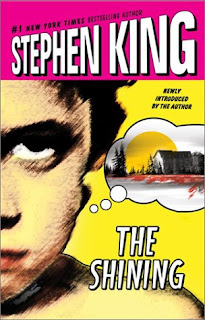
There's an argument that The Lovely Bones is a gimmicky book. It's a tale of the disintegration of a grieving family told from the point of view of their murdered daughter. As she watches her family up from heaven with a sort of passive Buddha-like idiot benevolence, we become a sort of voyeur into one family's turmoil. It's pain porn, it's grand guignol melodrama. The story is mostly formless, a series of vignettes dipping in and out of the family's life over the course of several years. The reader doesn't even get to experience a good vicarious sense of vengeance when the murderer gets got. There's no violent death at the hands of a righteous family member or apprehension at the hands of dogged police pursuit. Instead, you get a tale of love and loss, intimacy and regret, growing up and growing old.
I enjoyed the hell out of it.

As I was reading the book, I started to realize that the framing device of the heavenly narrator wasn't actually necessary. She's dead when we meet her, she doesn't seem particularly angry at her murderer (which makes later declarations of outrage hit an oddly false note) and she sort of loves everything and everyone without hesitation. Yes, there is a scene where she inhabits the body of a friend to share a first kiss with her high school sweetheart, but I started to realize that that I had become emotionally invested in the family enough that I didn't need a serene POV walking me through the story.
Still it's unique and dreamy. It feels like the voice of a teenage girl; at once emotionally raw, completely honest, and self-mythologizing. I get harped on a lot in my writing (legitimately so) for injecting too much of an omniscient narrator into my book, and it hit me that author Alice Sebold figured out the perfect way to do this. Susie has a very intimate view of her family, but is distant enough to comment on their behavior as a narrator.

I can't help but feel like I'm going to get in trouble for this, but did anyone else think that Susie's mother was being a self-indulgent asshole for running away from her family?
I mean, okay, her father was entirely too fixated and sloppy about how he went about gathering information on the creep who killed his daughter. And families do fall apart after tragedies like this. But it also seems to me that screwing around behind your husband's back and running away in the manner she did was just straight messed up.
I was at a wedding the other day and, after a few trips to the open bar, me and my fellow bachelors who'd managed to avoid the garter belt were standing around and discussing the wonders of dating women. Someone...okay, me...said that the tricky thing about dating women was that there's a part of them that's always locked away, that always stares at you from across from a great distance. You can try as hard as you like but you can never quite get all the way close to them.
Sexist? Maybe. But when people talk about the mysteries of women, I sometimes think this is what they're talking about.

I tried watching the movie, which was a horrible idea. Aside from the murder and the beatdown in the cornfield and the break in at the murderer's house, not much happens in the story. When Petey Jay directed the flick, he really jazzed up the scenes in Heaven, but the book doesn't focus too much on Susie's afterlife, so tremendous amounts of quality character stuff gets lost in the razzle dazzle world of the movie.
A shame. This is really good stuff. I recommend this book for anyone with a taste for melodrama and a love of strong characterization. I'm going to take a lot away from this book. I hope you do, too.

















